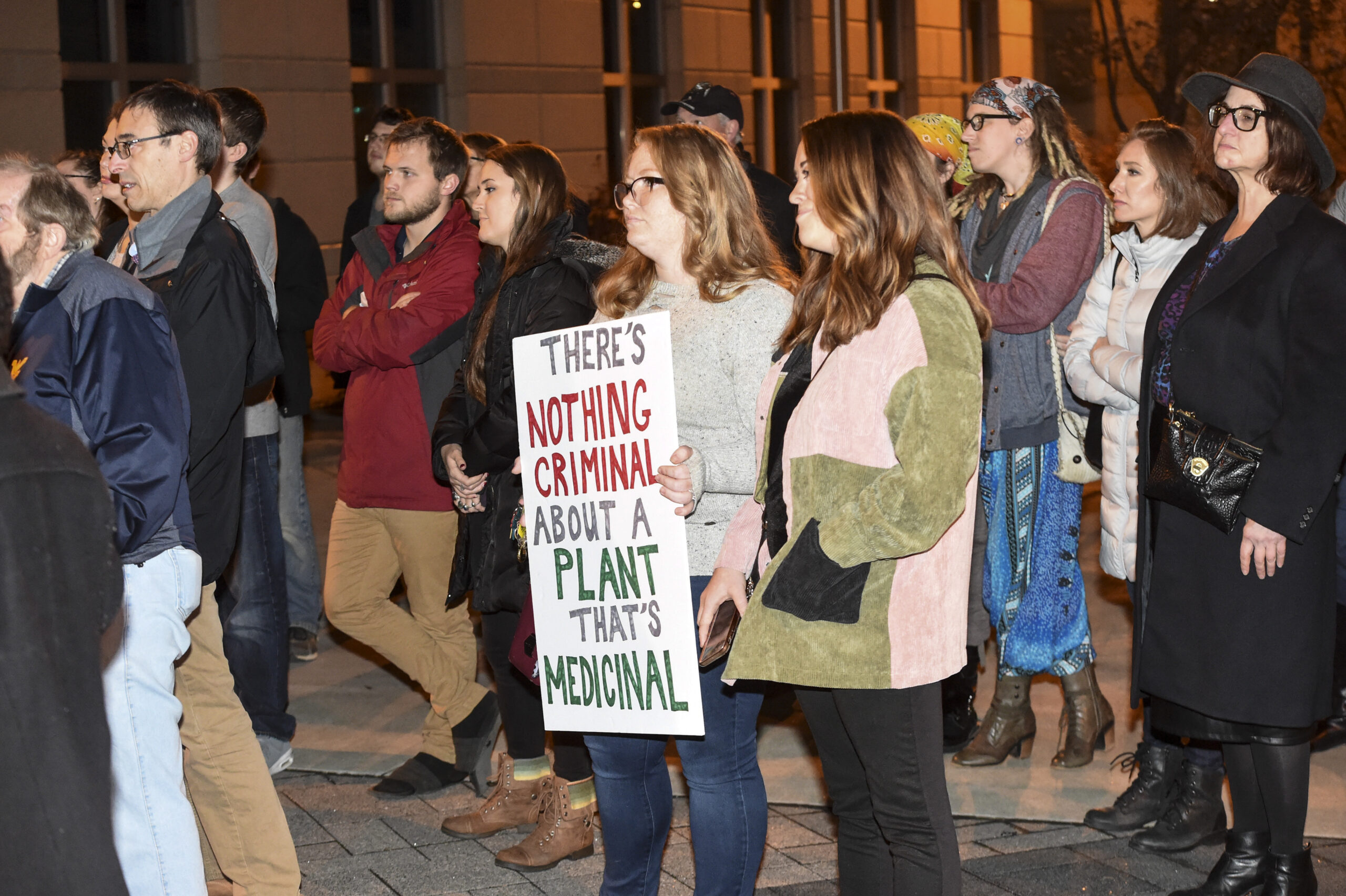MORGANTOWN — Barring changes to West Virginia Code, the City of Morgantown does not intend to take up an initiative to reduce penalties for cannabis possession within the city.
Morgantown Communications Manager Andrew Stacy confirmed as much on Thursday, explaining “In order for there to be a change, there would need to be a legislative change,” at the state level.
During the Nov. 26 committee of the whole session, Morgantown City Council heard from ACLU of West Virginia Policy Director Eli Baumwell and Andrew Cockburn, state chair of the West Virginia Working Party, who presented a model ordinance that would eliminate jail time and implement a nominal fine ($5-$15) for possessing 15 grams of cannabis or less.
Under current state code, possession of marijuana is a misdemeanor punishable by not less than 90 days, nor more than six months in jail and/or a fine of up to $1,000. Penalties double for a second offense.
First-time offenders caught with less than 15 grams are often placed in a one-time diversion program that can prevent a conviction and allow the arrest to be expunged one year after the program’s completion.
During subsequent conversation on the topic it was explained that under the city’s current setup, the move would be little more than a hollow gesture as the Morgantown Police Department’s drug arrests go to magistrate court, not municipal court.
The city has no authority to limit sentencing by magistrates or circuit court judges.
“Since 2008, the Morgantown Police Department, at the direction of the city prosecutor’s office, has not prosecuted any drug case in municipal court due to the lack of funding for testing on controlled substances and the lack of an established municipal probation office as required by 60A of the WV Code,” Stacy explained.
Stacy also echoed concerns voiced by Councilor Barry Wendell, who explained that he is in favor of outright legalization, but feared making this move would lead to confusion as the WVU Police, Monongalia County Sheriff’s Department and West Virginia State Police all operate within city limits.
In other words, regardless of what the city does, “the county sheriff, WVU Police, state police could come in and arrest somebody and throw them in jail for six months over a small amount of marijuana, so it seems to me that this needs to be really done on the state level,” Wendell said during a recent meeting with state legislators.
The fear of creating confusion or a false sense of security was also among the points raised by WVU Vice President for Strategic Initiatives Rob Alsop, who voiced “significant concerns” over the proposal in a letter to City Manager Paul Brake.
Stacy explained further.
“Creating a municipal code that is not consistent with the state code establishes a false sense of understanding and security for citizens,” he said. “Even though the city may regulate something one way, it would not apply to any state or county law enforcement officers, or anywhere outside of the city limits of Morgantown. A person could be charged by a deputy sheriff while standing right next to a Morgantown police officer under state code, and the city code would be irrelevant.”
According to Stacy, the Morgantown Police Department handed out 82 citations for simple possession of marijuana — less than 15 grams — between Dec. 1, 2018 and Dec. 1, 2019.
Delegate Danielle Walker told Wendell that a bill put forward at the state level ended up stuck in committee during the previous legislative session.
During a decriminalization rally prior to the Nov. 26 council session, she said she intends to keep pushing the issue in Charleston, explaining that the medical cannabis bill passed into law in 2017 isn’t a solution for everyone.
“We need this to be done federally, in the state, at the county level and at the city level,” she said. “I fought for it this past session and even though my bill didn’t get very much traction, I still get those calls, ‘Dani, I need this medicine. I cannot afford that application process,’ or ‘I need this medication, but because I live in HUD housing, I’m not allowed.’ You just end up forcing people into the black market.”
According to the West Virginia Department of Health and Human Resources Office of Medical Cannabis, the office will begin accepting permit applications for medical cannabis growers, processors, dispensaries and laboratories on Dec. 19.




